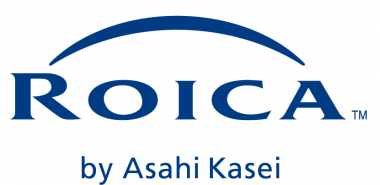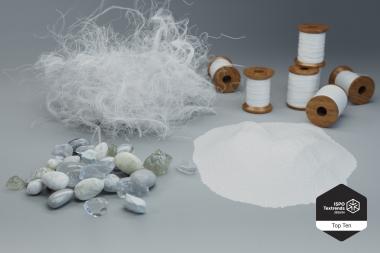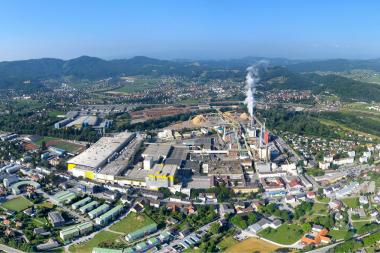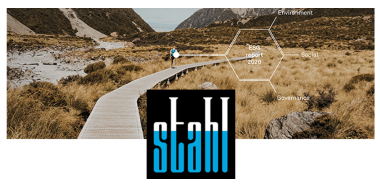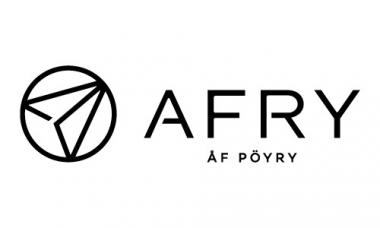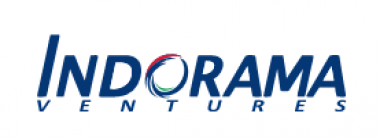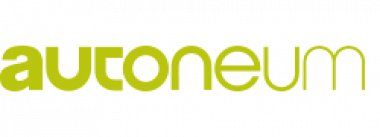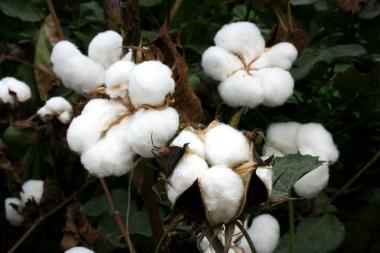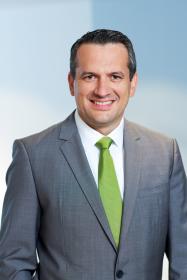Online Voting Opens for “Best of the Best” IDEA® Achievement Awards
- Winners in Six Categories to be Announced at IDEA® 2022 in Miami Beach
Online voting for the IDEA® Achievement Awards representing the “best of the best” innovations in the global nonwovens and engineered fabrics industry in six categories will open on Feb. 28.
Industry professionals will have the opportunity to vote for the winners from the finalists and see award-winning achievements in person at IDEA® 2022, the World’s Preeminent Event for Nonwovens & Engineered Fabrics, March 28-31, at the Miami Beach Convention Center.
Presented by INDA, in partnership with Nonwovens Industry magazine, the awards recognize the leading introductions in equipment, raw materials, short-life, long-life and nonwovens products, and sustainability. To vote on the Nonwovens Industry website, visit: https://www.nonwovens-industry.com/idea-reg-achievement-awards
In addition, INDA will unveil the IDEA® 2022 Lifetime Achievement Award honoree and Nonwovens Industry will announce the IDEA® Entrepreneur Achievement Award recipient at the event.
All of the winners will be announced on March 30 at a ceremony at IDEA® from 9:30 a.m. to 10:30 a.m. moderated by Dave Rousse, President, INDA and Karen, McIntyre, Editor, Nonwovens Industry.
The INDA Technical Advisory Board, consisting of technical professionals from member companies, has narrowed the competition from more than 100 online nominations to the following 18 finalists selected for their leading innovations since the last IDEA show in 2019.
The industry will have the chance to select their top choices from the three finalists in each of the following six categories through the online voting process:
IDEA® Equipment Achievement Award
- ESC-8 – Curt G. Joa, Inc.
Imagine endless combinations of insert and chassis designs for adult incontinence production at the push of a button. With patent-pending ESC-8™ Electronic Size Change Technology, JOA has addressed the need for automated product size change. The release of this industry-leading, first-of-a-kind technology gives customers the flexibility to configure endless insert and chassis combinations while maintaining higher production speeds and minimizing raw material usage. The ESC-8™ can be integrated into new and existing machines.
- Elastic Thread Anchoring (ETA) Sonotrode – Herrmann Ultrasonics Inc.
Elastics are an integral component to many hygiene products. Imagine a diaper or incontinence product that is reliable, adhesive-free and extremely soft. Herrmann Ultrasonics Elastic Thread Anchoring (ETA) Sonotrode technology provides just that, in an industry first, easy-to-use closed-loop feedback manufacturing solution. The fixation of the elastic threads is accomplished with ultrasonic energy that offers a wide process window, without the need for tool changeovers, at processing speeds above 2,000 ft./min.
- Doffer Airlay Card – Technoplants SRL
With airlaying suction and a doffing system like traditional roller cards, the Doffer Airlay Card makes it possible to produce carded webs with doffer in thicknesses from 10 to 1.500 gsm. With top and bottom suction, it can produce a partly carded and partly airlaid web. This card can comb, separate and make parallel all types of natural, synthetic and regenerated fibers for applications including hygiene, filtration, medical and gradient acquisition distribution layer (ADL).
IDEA® Raw Material Achievement Award
- sero™ premium hemp fiber – Bast Fibre Technologies Inc.
sero™ 100 percent premium hemp fibers are the result of years of the company’s top-to-bottom supply chain experience. BFT’s proprietary processing technology is employed to carefully clean, individualize, and soften bast fibers that meet stringent nonwoven technical standards and are plastic-free, tree-free, and compostable. sero™ fibers are a plug-and-play replacement for plastic fibers that run seamlessly on major nonwoven platforms without compromising production speeds, efficiency, or uniformity.
- ODOGard – Rem Brands, Inc.
Rem Brands, Inc.’s patented ODOGard® technology is a revolutionary advancement in odor elimination. This next-generation odor elimination mechanism works by covalent molecular bonding to malodors. Malodors are permanently attached to the ODOGard® molecule, changing them into non-odorous molecules forever. ODOGard® can be impregnated into pulp fluff and other kinds of media. Whether malodors come from the air or from hygiene products, ODOGard® has it covered.
- SharoWIPES™ – Sharon Laboratories
SharoWIPES™ by Sharon Laboratories, Israel, is a technological breakthrough from in-depth scientific research addressing industry needs for more “clean label, non-irritating, eco-friendly” consumer wet wipes. With their unique anti-biofilm mechanism, SharoWIPES™ offer dual protection from microbial contamination of both the wet wipe formula, as well as the non-woven fabric. SharoWIPES™ preservation systems deliver broad-spectrum protection at low levels contributing to wet wipe brand equity with free from, microbiome friendly, vegan and biodegradable claims.
IDEA® Short-Life Product Achievement Award
- MDP™ – Dermasteel, Ltd.
MDP™ presents a breakthrough approach to restoring the quality of life for men experiencing bladder leakage. MDP™ is a revolutionary nonwoven product for men coping with light urinary incontinence that is invisibly discreet, effective, comfortable, and reliable. It features Body ID Technology™ for customized adjustment, variable elasticity strapping, self-reflexive side panels for unimpeded breathability, form-fitting to the unique characteristics of each man’s anatomy, and the smallest carbon footprint of any comparable male incontinence option.
- Organic 2.0 – Ellepot A/S
In young plant propagation, plastic products are used in large quantities. Ellepot’s new paper is a game-changer supporting plastic exit strategies. During six years in development, Ellepot and Ahlstrom-Munksjö partnered with OrganoClick, the developer of special binders using organocatalysis, a field of chemistry awarded the Nobel Prize in 2021. The product is approved for organic crops in Germany, the UK, Denmark, The Netherlands, Sweden and Canada and certified okay home compostable and biodegradable in soil.
- LifeSavers Wipes – LifeSavers LLC
LifeSavers Wipes are personal hygiene wipes that change color if they detect abnormal health indicators in the urine. The launch product is a diabetic wipe, which will change color if there are abnormal levels of glucose in the urine. The wipes are therefore triple purposed as they assist with personal hygiene after urinating, act as an early warning system, and serve as an instant glucose monitor. UTI and kidney disease wipes are next in line.
IDEA® Long-Life Product Achievement Award
- Canopy Hero Pro – Canopy
Today’s reusable respirators are uncomfortable, limit communication, and can lose effectiveness after cleaning. Disposable options pose similar issues and generate waste. Canopy® has created a next-generation, reusable respirator for healthcare workers that’s comfortable, easy to clean, exceeds federal safety standards, has a transparent front to allow for improved communication, costs less than disposables, and can help save 7,200 tons of waste daily. Its patented, transparent, fully mechanical filter helps protect those who protect us.
- Long-Life Cellulose-based Nonwovens for Higher Performance in Reusable Baby Diapers – Kelheim Fibres GmbH and Sumo Diapers
Innovation exemplified: the trend-setting Sumo Baby Cloth Diaper shows how needle-punched/thermobonded nonwovens find their way into reusable diapers, thanks to Kelheim Fibres’ specialty viscose fibers with adjusted cross-sections (trilobal and hollow). This technology pushes liquid management capabilities and the absorbency of washable hygiene products to new levels, creating a unique duality of high-performance and high-sustainability credentials, and opening up new fields of application.
- Nanofiber Cabin Air Filter – MANN + HUMMEL GmbH
MANN+HUMMEL has developed a hybrid media by combining electret-based spunbond and a pure mechanical filtration layer of ultrafine polymer fibers. The result: an outstanding separation of PM1 particles up to 95 percent, according to DIN EN ISO 16890. This technology enables stable filtration performance and long-term efficiency over the whole filter lifetime. The nanofiber layer can be combined with any cabin air filter media of the MANN+HUMMEL range, improving air quality in a vehicle’s cabin significantly.
IDEA® Sustainability Advancement Award
- Pureflow8 – In Flight Material Separator – Diaper Recycling Technology Pte. Ltd.
New bolt-on additions to the company’s Generation 8 recycling platform guarantee increased performance in terms of material purity and work efficiency. While recovering up to 87 percent of diaper waste raw material’s financial investment, DRT pushes the boundaries further to meet sustainability targets and include active pulp scanning, fluidizing SAP re-gen technology, and gravimetric pulp refeed processes. DRT recognizes its teams and suppliers who have worked tremendously hard to complete this major milestone.
- Fitesa® 100 Percent BioBased Bico – Fitesa
Fitesa® S Bico 100 percent BioBased PE/PLA is a technically sophisticated plant-sourced nonwoven that has been successfully applied in innovative baby diapers as topsheet, backsheet, and front ear components to deliver classic spunbond strength with good abrasion resistance and converting performance. It is responsibly sourced, PE soft, and sustainable, leaving a negative carbon footprint by reducing environmental CO2. It represents the next generation of hygienic nonwovens designed to make work easier and life better.
- Fiber-based Screw Caps – Glatfelter Corp. and Blue Ocean Closures
Finally, an alternative to metal and plastic screw caps! Blue Ocean Closures partnered with Glatfelter and ALPLA to accelerate and produce sustainable and environmentally-friendly packaging solutions. The companies optimized their use of renewable and recyclable wood fibers and airlaid materials by creating paper-based screw caps that are durable, strong, and water-resistant. The method of proprietary vacuum press forming allows for low production cost and high scalability.
IDEA® Nonwoven Product Achievement Award
- Sontara® Silk – Glatfelter Corp.
Sontara® Silk perfectly fits facial contour, is luxurious on the skin, and has a minimal environmental impact. When infused with lotion, these masks have enhanced elasticity, conform closely to the skin, and have excellent adhesion. Sontara® Silk has superior translucency and ensures even penetration of active ingredients onto the skin. Sontara® Silk fabric is manufactured with premium fibers derived from natural raw material. These sustainable materials allow the product to be biodegradable and compostable.
- HYDRASPUN® Aquaflo – Sustainable Nonwoven Substrates – Suominen Corporation
Suominen’s latest moist tissue product, HYDRASPUN® Aquaflo achieves dry tissue dispersibility through a proprietary blend of 100 percent sustainable cellulosic materials, minimizing environmental impact. This flushable nonwoven has a premium hand feel for a luxurious consumer experience. In addition, it passes dispersibility standards set by INDA (GD4) and the International Water Services Flushability Group (IWSFG.) HYDRASPUN® Aquaflo is produced in Europe and North America and represents multi-year development and market insights to deliver a personal care product ideal for today’s consumer.
- LS SAF™ Nonwoven Fabrics –Technical Absorbents
Technical Absorbents developed a new grade of Low Shrink (LS) superabsorbent fiber (SAFTM) for use within a new range of nonwovens that are more resistant to shrinkage. The new LS SAFTM fiber and resulting fabrics were developed in response to demand from the medical industry for a superabsorbent nonwoven suitable for use in advanced wound pad dressings. The new fiber was engineered to be capable of withstanding the moisture used in the EtO sterilization process.
Moving forward after this year, the IDEA® Achievement Award will be presented every two years under the new cycle announced for the event with the subsequent IDEA® taking place April 23-25, 2024.
INDA






